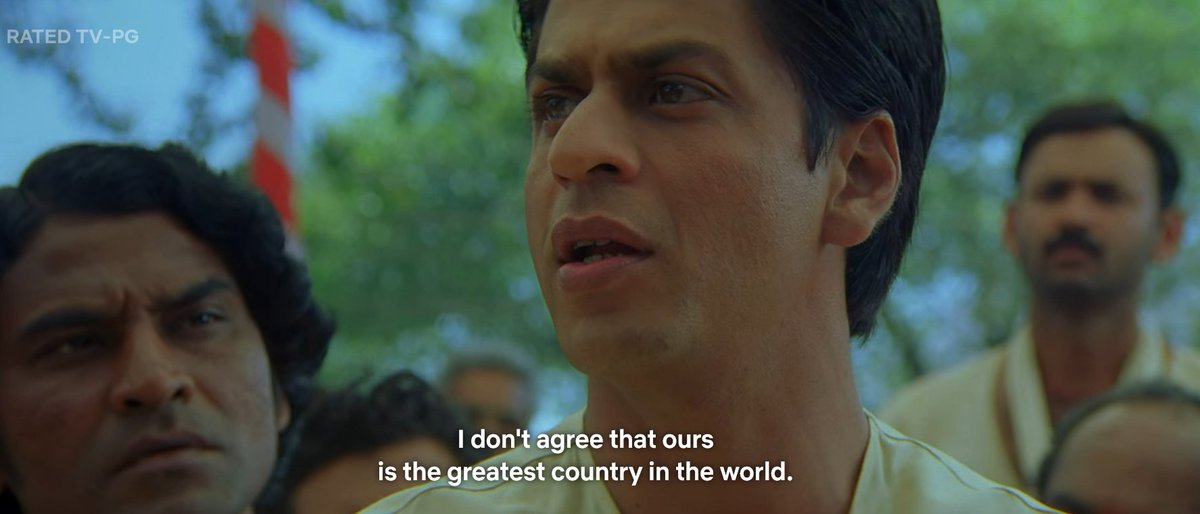Very thankful to Rema Nagarajan for providing this platform for my research and dissertation. Many ideas are discussed in this interview, and in this thread I would like to highlight one: the dominance in Indian policymaking of elite Indians and elitist worldviews.
https://twitter.com/RemaNagarajan/status/1543466907604422657
A while back I made a presentation on health policy in India. I will use some slides from that ppt here 

One way to look at this problem is this: The major topics which politicians and policymakers are discussing today, along with their proposed solutions, do not differ much from what we have had for decades 
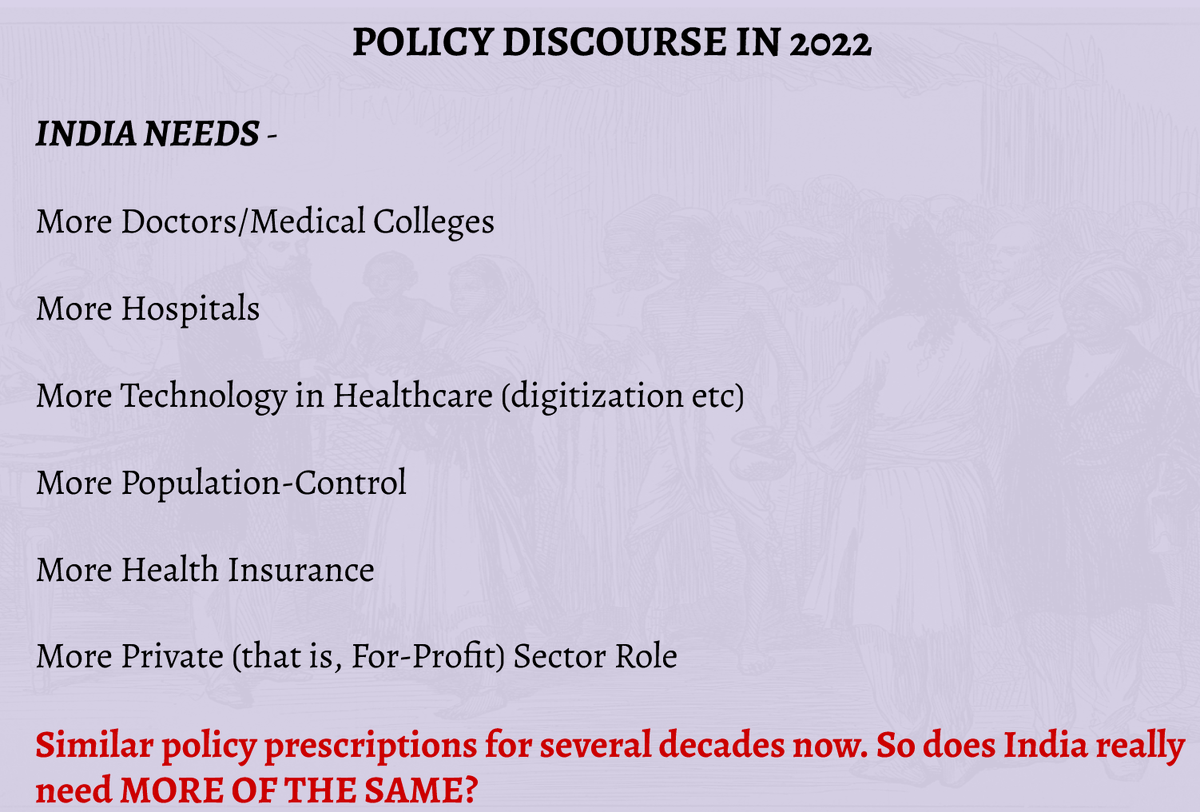
There r many reasons for that, & among the most imp reasons is the complete failure of those in power in India (politicians and bureaucrats, and the elites who control the public discourse incl media and publishing etc.) to fully grasp the nature & needs of the country & its ppl 
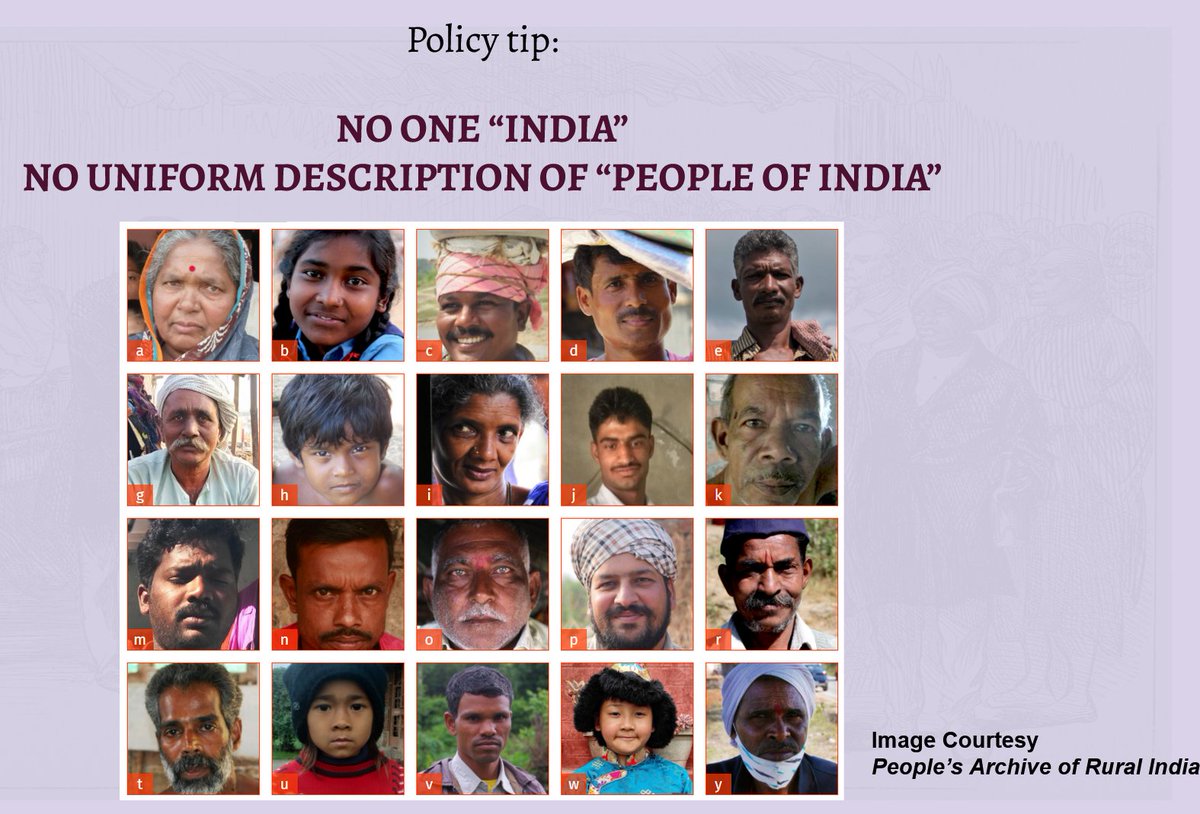
The population control policy - the manic emphasis on it in 1960s-70s, its later continuation as an ostensibly imp policy, & its recent aggressive resurgence - is a great example of this gross failure of India's dominant elite - large numbers of whom belong to privileged castes. 

In the everyday discourse of many many Indians, for example, it was hardly an issue of importance. This research by Mahmood Mamdani, eg, is from the 1970s. There's more from Mamdani as well as many others... 
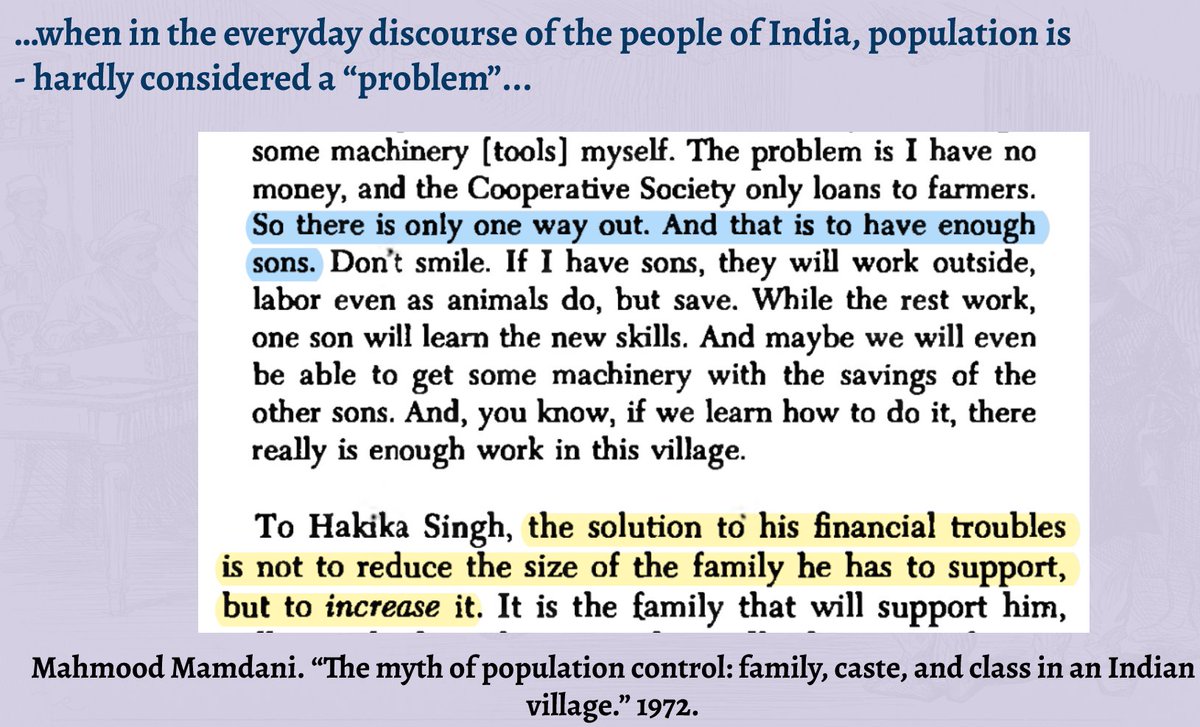
... And this, eg, is among the most eye-opening reflections of the people of India (and something which probably never even occured to our elites) 
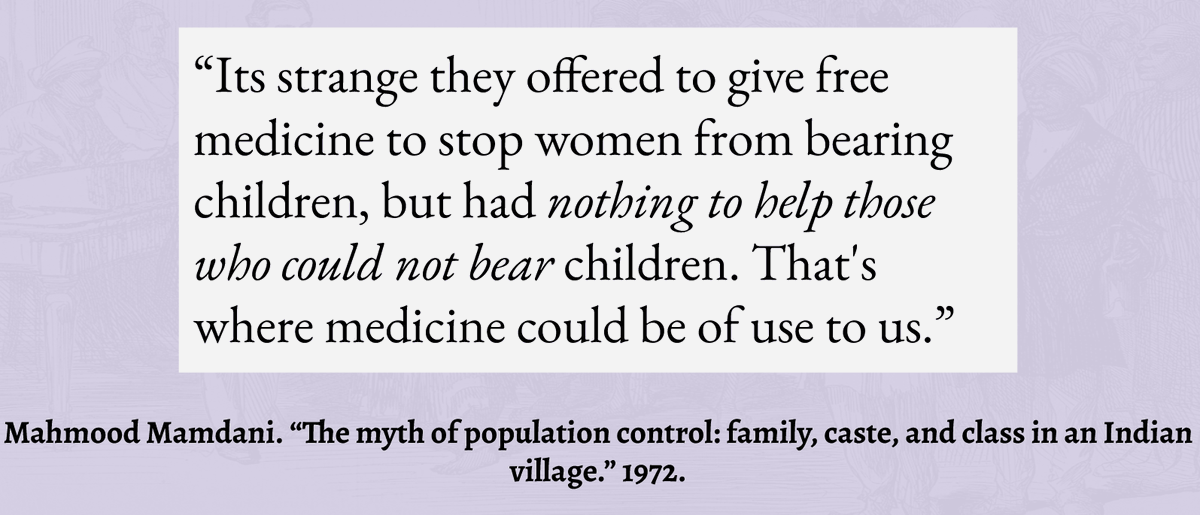
Then there was work in the 1970s and later on community healthcare projects like those of the Aroles. This work showed that there was far more, and far more imp and urgent, to healthcare than the dominant ideas of pop control, increase in no. of doctors and hospitals, & the like 
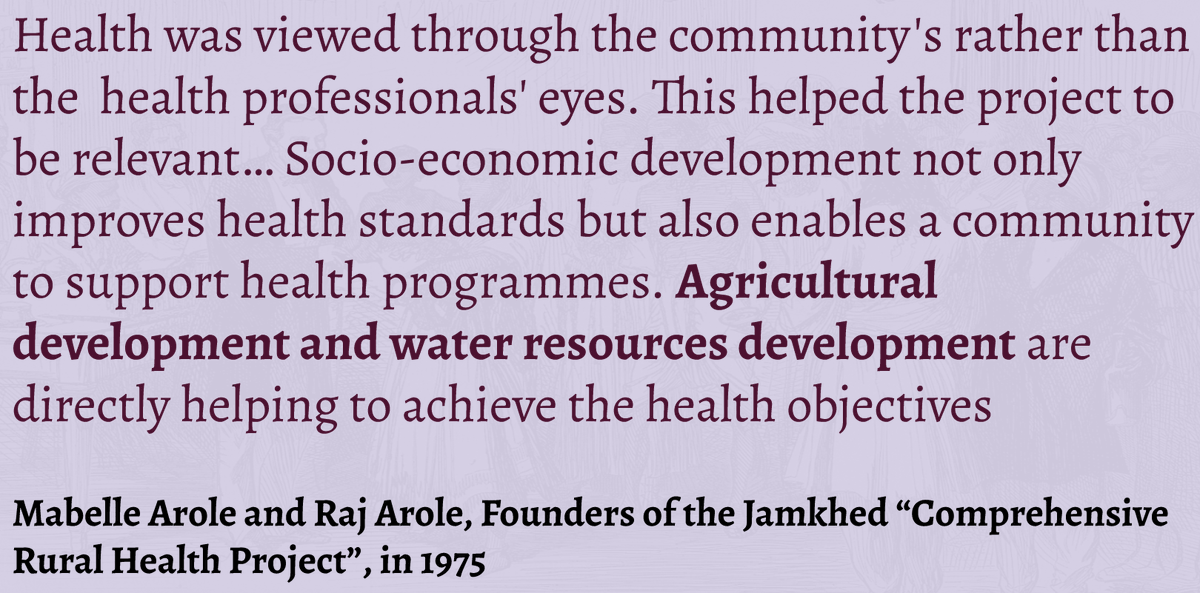
How come policymakers & elite commentators (including many doctors) have for decades ignored such evidence? A major clue lies in their common, shared social networks ("social bubbles"), in which such viewpoints are both rare, and when introduced, frequently dismissed as worthless
Let's look at another example, Tuberculosis, which is yet another instance of Indian health policy's "more of the same" approach. 
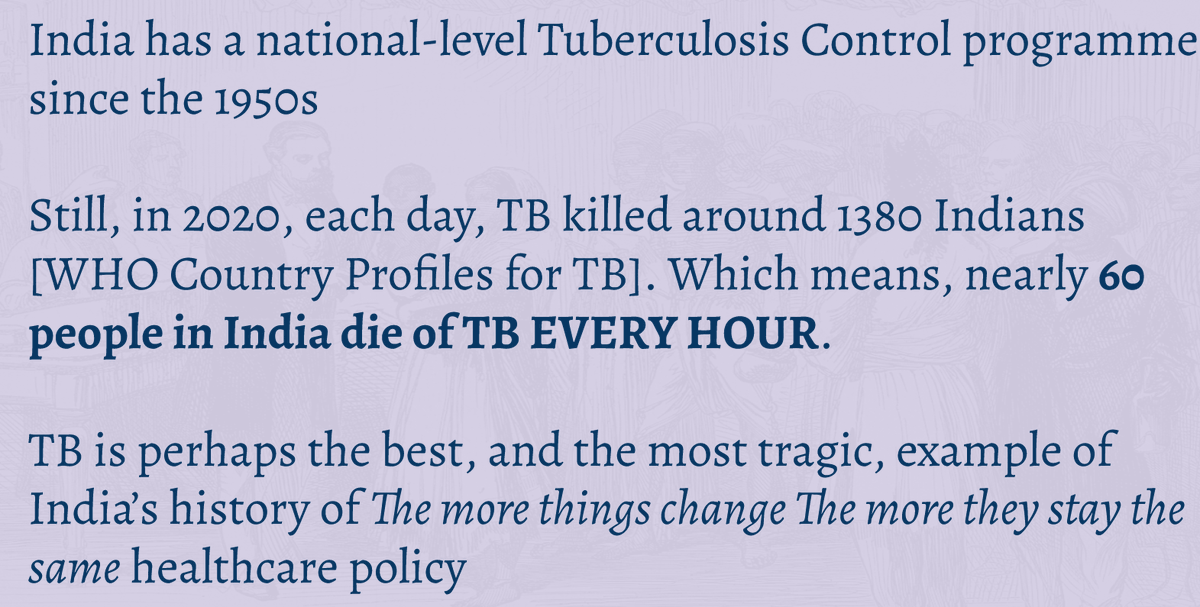
Even when it has been known for decades that proper nutrition, housing, and general standards of living have helped many nations almost eliminate TB, we spend far few resources on those measures, while we spend far more on "magic bullets" 
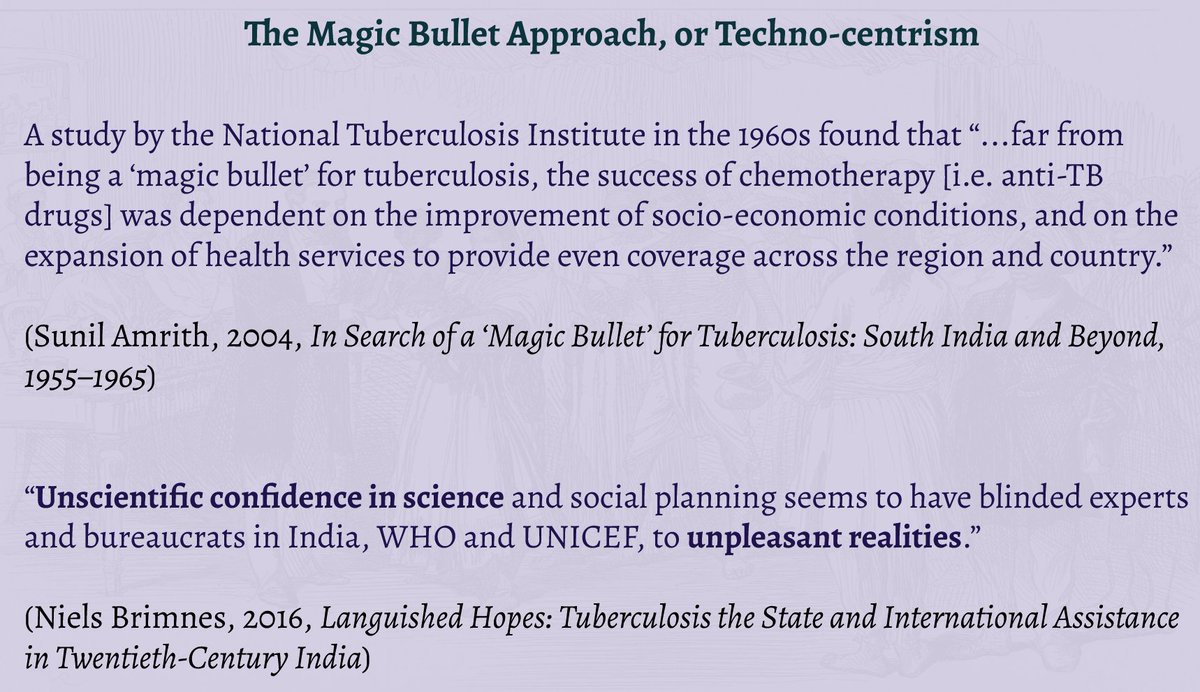
One major way in which caste and casteism play a role in the origin and sustenance of such discrepancies is the unique socialization and education (at home and in family/social circles) of a substantial majority of the privileged in India
They are socialized into believing that, eg, 1) caste and caste-based inequalities (often sugar-coated as income-based inequalities) are "natural" states of affair which need not be questioned or challenged, and 2) reservation policy is "injustice" on privileged-caste communities 
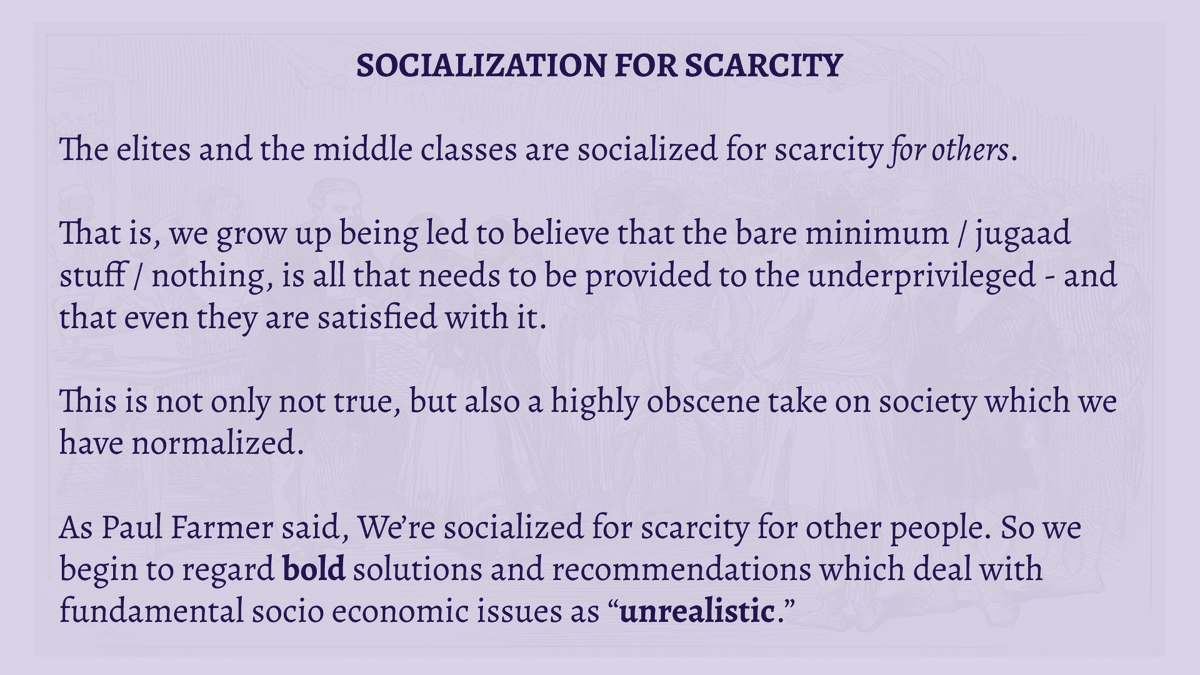
Recently we have another instance of policymakers ignoring or brushing aside evidence which focuses on the unpleasant realities of the lives of subaltern Indians: little official acknowledgment of new research on caste-based inequalities in life expectancy
telegraphindia.com/india/adivasis…
telegraphindia.com/india/adivasis…
Clearly, the most imp prerequisite to break the "more of the same" cycle in Indian healthcare policy is for policymakers & elites to learn that - as Sheila Zurbrigg wrote in the book "Rakku's Story" in 1984, "issues of socioeconomic justice and health are concretely inseparable" 
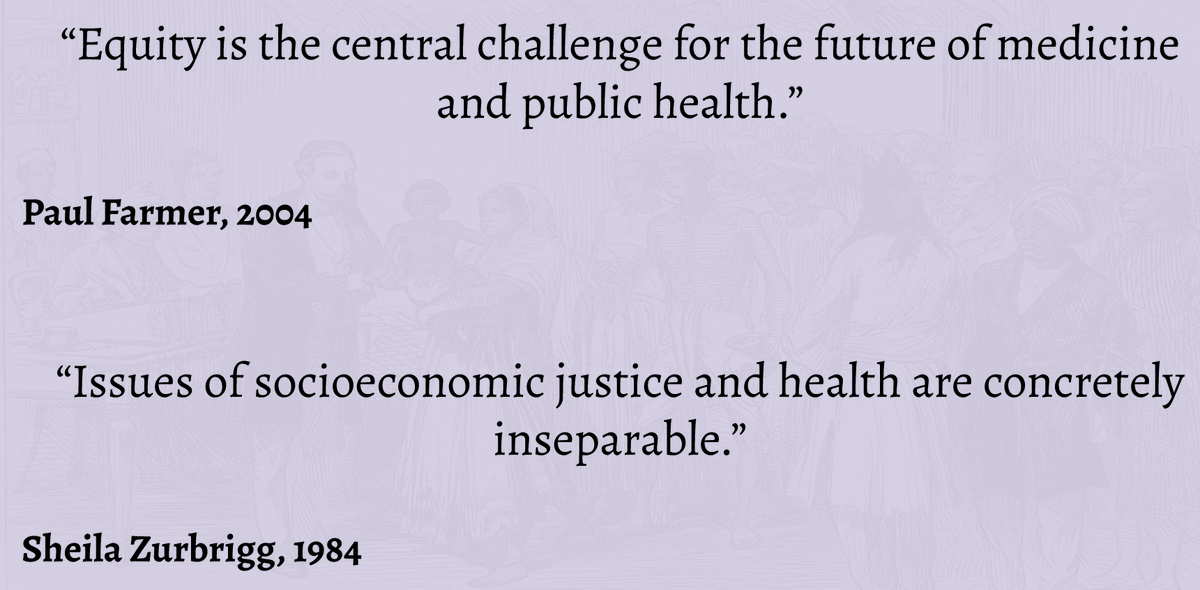
In the Indian context, that means looking at casteism, caste-based worldviews and blindspots, and caste-based inequalities as highly relevant and significant social and, hence, healthcare challenges. 
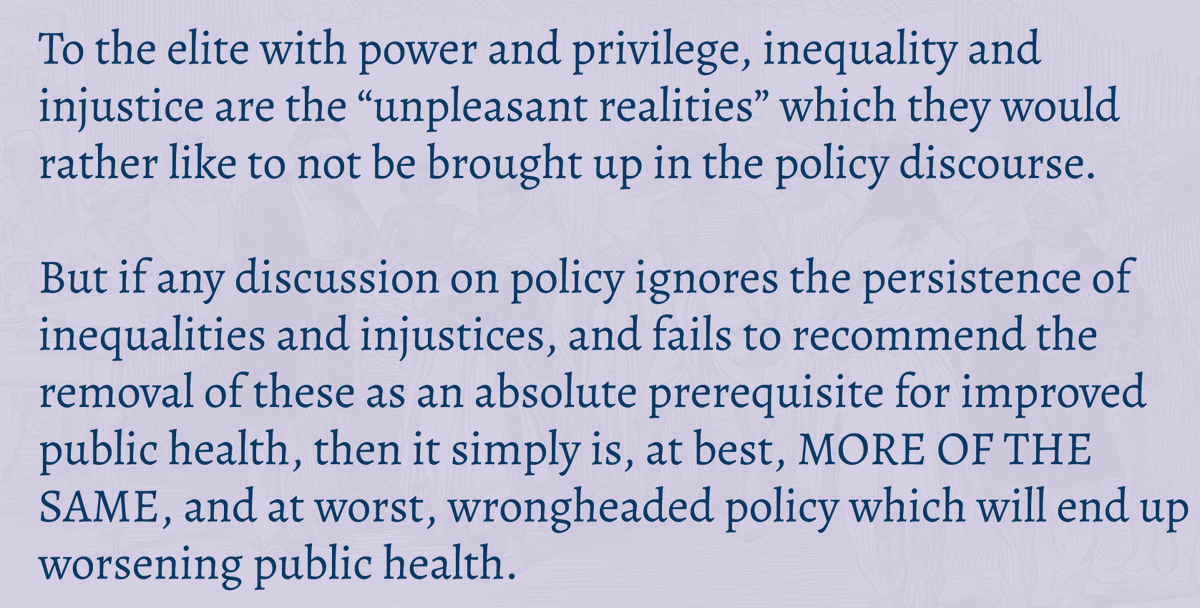
Such broadening of minds is essential if policymakers and elites wish for India to make any worthwhile progress in healthcare. Broadened minds will also lead to broadened definitions of what health means, like this one by @PHMglobal @jsa_india 
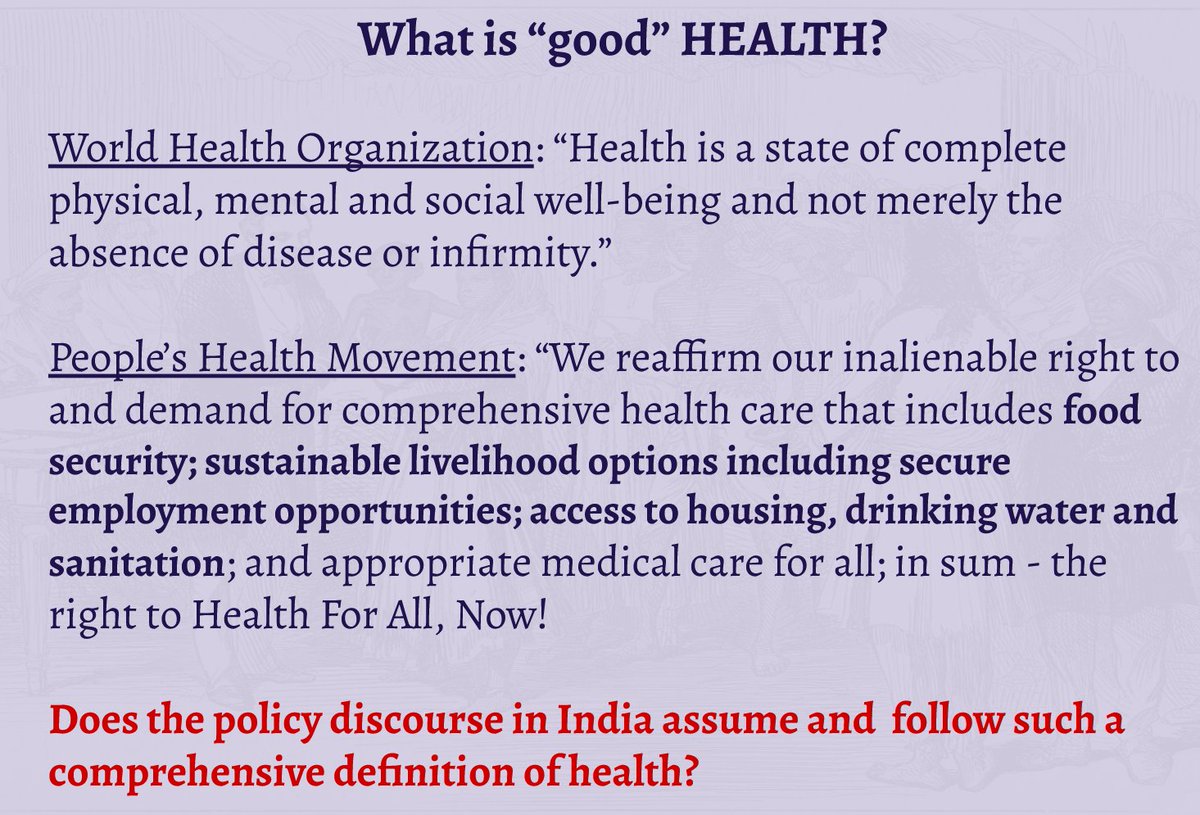
• • •
Missing some Tweet in this thread? You can try to
force a refresh




